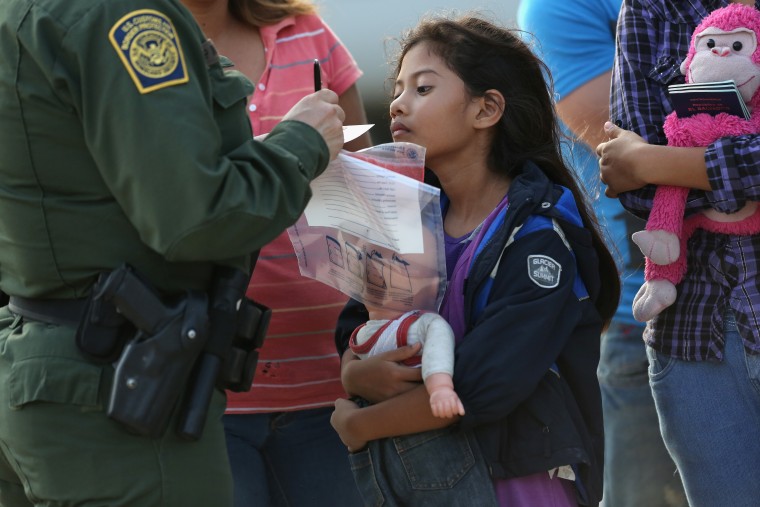Mexico is set to eclipse the U.S. for the first time in apprehensions of child migrants from Central America, reflecting its new role as an immigration enforcer, a report released Thursday shows.
The Migration Policy Institute reports that Mexico's apprehensions of child migrants from Honduras, Guatemala and El Salvador - collectively known as the northern Triangle - are expected to increase, while such apprehensions by the U.S. are dropping sharply.
Meanwhile, Mexico's deportations of Central American child migrants - greater than the U.S. for a number of years _ also are growing so that this year Mexico deportations of Central American children are expected to be 12 times those of the U.S., compared to double in 2014, institute researchers said.
As a result, migrants who in the past made it to the U.S. border and appeared in U.S. apprehension data, are now intercepted and show up in Mexico's statistics. Mexico includes all children in its data not just those that are unaccompanied, which the U.S. tracks as a separate category.
The institute said the findings reflect Mexico's growing enforcement efforts that are producing a "squeezing of the balloon."
"Mexico has been adapting to its changing migration reality from being a country of origin to becoming a country of mostly transit and increasingly of destination and with that adaption Mexico's responsibility as a regional migration manager is increasing," said Rodrigo Dominguez, one of the report's authors.
"In the United States, the very low number of deportations relative to apprehensions reflects limited adjudication capacity and long backlogs; conversely, the very high ratio of deportations and apprehensions in Mexico indicates limited humanitarian screening and inadequate due process protections," the report states.
The report's findings comes as people around the world have been stunned by images of the lifeless body of a young child Syrian refugee that washed up on the beach in a Turkish resort. The child, identified by Turkish authorities as Aylan Kurdi, was 3 years old.
A world away from the Mediterrannean, tens of thousands of unaccompanied children risked their lives to ride atop trains that cut through the Central American and Mexican countryside. They also trekked through merciless deserts to get to the U.S. border. The photos that first drew attention to their plight last summer were of the children crowded into U.S. border facilities.
Many of the children were sent back home by the U.S government. Some have remained in detention facilities in the U.S., their confinement or deportation used as enforcement measure to send a message to other would-be migrants. A U.S. judge has ordered the release of those still held in detention.
RELATED: Young Guatemalan's Death Shows Grim Reality of Border Crisis
In addition, immigration has become a central issue in the 2016 presidential race with calls for building a border wall and mass deportation of those already illegally in the country from some candidates. However, overall apprehensions at the border of people entering illegally are at all-time lows.
Researchers said Mexico's enforcement shift raises concerns about protection of vulnerable children in the country.
Dominguez said Mexico passed a new migration law in 2011 and created a more comprehensive immigration program in 2014.
"Today Mexico struggles with the challenge that the U.S. struggled with for decades," he said, "which is how to balance the enforcement of migration law on the one hand with the protection of migrants and their rights on the other."
Other takeaways from this report:
-- Only about 11 percent of the people from Honduras, Guatemala or El Salvador who were deported have been convicted of committing violent crimes. Just 1 percent of child deportees from the U.S. from those countries were convicted of a violent crime.
--Most of the adults deported are young males who are low-skilled and lack education. Among minors, they are mostly males between 12 and 17, however the numbers of girls among those being deported is increasing.
--The three countries of the Northern Triangle are receiving tens of thousands of deportees a year, demonstrating a need for services upon arrival, such as a phone call – which have been increasing - and reintegration services such as access to schools, job training or employment.

